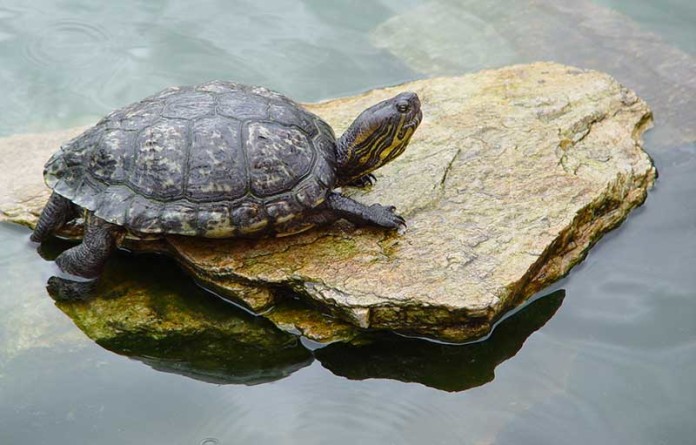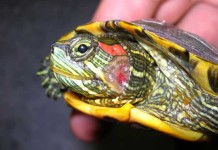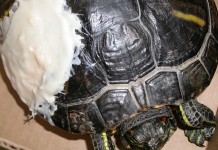Red eared slider ponds are becoming more and more common place as people look for inventive ways to spruce up their backyard gardens. Having living, moving animals as a part of your garden is a truly wonderful way to make every day more interesting and to get folks in the neighborhood to take notice. Unfortunately, many people don’t take the time to think about the consequences of creating a mini-biome in their backyard. You can’t just dig a hole, fill it with water, throw in the turtles and feed them. Sliders need regular care and attention if they are going to stay healthy.
The biggest risk, without a doubt, that comes with keeping sliders in your backyard pond is the temperature. Unless you live in the extreme southern portion of the United States, chances are the temperature in the fall and winter will fall dangerously low for your turtles. So low, in fact, they will need to hibernate or they will become sick and die. If you live in the northern US and your pond freezes solid in the winter, you are going to have to get a pond heater or bring your turtles inside for the winter.
When the water in your pond drops to less than 75 degrees Fahrenheit, your sliders will be looking for a place to hibernate. If they cannot hibernate, they will become temperature sick: lethargic, refusing to eat, and maybe even coming down with respiratory infections. A respiratory infection, if left untreated will kill your turtles if the cold temperatures don’t. So what does a respiratory infection look like for a red eared slider? Your turtle may develop a runny nose, he may have trouble swimming, go off feed, become lethargic, and wheeze. Any of these symptoms may be signs of a respiratory infection and you should take action immediately if you see them.
Another thing to consider if you have a red eared slider pond is the fact that your slider will have access to things that he would not have access to were he housed indoors. In your backyard, all sorts of things can fall into your pond and prove hazardous to your slider if he ingests them. If you have a thriving garden, for instance, various plant matter could fall into the pond that is poisonous if eaten. The best thing to do is do a thorough examination of every plant in your yard and see if any of them are poisonous if ingested. If so, consider getting rid of them or placing them far away from your pond. If you go with the latter, however, be aware that sliders are very good climbers and could possibly get out of the pond and get to other plants. Sliders generally don’t eat out of the water, but it’s best to not take any chances.










